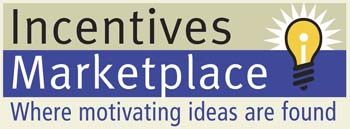Travel Incentives vs. Cash Bonuses: Which Motivates Employees More?

Employee motivation is the cornerstone of a successful business. Companies of all sizes continually explore creative ways to keep employees engaged, rewarded, and loyal. Among the most common incentives, two stand out: travel incentives and cash bonuses. But which truly motivates employees more? While money has an undeniable appeal, experiences like travel often create lasting memories that cash cannot replicate. Let’s take a deeper look at the debate of travel incentives vs. cash bonuses, weighing their advantages, drawbacks, and impact on employee motivation.
The Psychology of Motivation: Why Rewards Matter
To understand the debate, it’s important to look at the psychology of motivation. Traditional compensation, like salary, is expected. Incentives, however, go beyond the paycheck. They provide recognition, spark excitement, and reinforce company culture. When designed strategically, incentives align with performance goals, making employees feel valued and appreciated. While both travel incentives and cash bonuses can boost motivation, they do so in very different ways.
The Appeal of Cash Bonuses
Cash is universally attractive. A financial reward is straightforward, easy to understand, and can immediately improve an employee’s financial situation. Whether it’s paying off debt, saving for the future, or covering household expenses, cash has flexibility. Many employees see bonuses as a tangible acknowledgment of their hard work.
Pros of Cash Bonuses
- Immediate utility: Employees can use cash however they choose.
- Universal appeal: Almost everyone appreciates more money.
- Simple administration: Companies can issue bonuses quickly through payroll systems.
- Boosts short-term morale: Cash provides an instant sense of reward.
Cons of Cash Bonuses
- Easily forgotten: Once spent, employees rarely remember what the bonus was used for.
- Expected over time: If given regularly, bonuses can become entitlements rather than motivators.
- Less emotional impact: Paying bills is practical, but it does not create a memorable story or lasting positive association with the employer.
The Unique Power of Travel Incentives
Unlike cash, travel incentives provide experiences that employees often cannot or would not purchase for themselves. From tropical getaways to adventure-filled excursions, travel rewards tap into aspiration and create powerful memories. Travel also has social value, as employees often share their experiences with colleagues, friends, and family, reinforcing positive associations with their workplace.
Pros of Travel Incentives
- Memorable experiences: Travel is tied to emotion and storytelling, creating lasting impressions.
- Encourages engagement: Employees look forward to travel opportunities and work toward them.
- Reinforces company culture: Group trips or shared travel experiences strengthen bonds between teams.
- Prestige factor: Travel feels special and exclusive, which enhances motivation.
Cons of Travel Incentives
- Not universally appealing: Some employees may prefer cash if they have family obligations or limited vacation time.
- Higher logistical effort: Organizing travel programs requires planning and resources.
- Tax considerations: Depending on local laws, employees may face taxable benefits.
Travel Incentives vs. Cash Bonuses: Which Delivers More ROI?
From a business perspective, return on investment (ROI) matters. Studies have shown that while cash bonuses deliver a short-term boost, travel incentives often deliver higher engagement and longer-lasting impact. Employees who participate in travel incentive programs report higher job satisfaction, stronger loyalty to their employer, and increased performance motivation. In essence, travel provides an “afterglow” that cash cannot replicate.
Companies also benefit from the visibility of travel rewards. Unlike cash, which is private, travel programs are often celebrated, shared, and discussed. This creates buzz inside the organization, amplifying their motivational effect.
Do Employees Prefer Travel Incentives Over Financial Bonuses?
Preferences vary, and demographics play a role. Younger employees, such as millennials and Gen Z, often place a higher value on experiences over material goods. For them, a unique trip can be far more rewarding than cash. On the other hand, employees who are managing significant financial responsibilities may prefer the flexibility of cash. The key for employers is balance. Offering a mix of incentives can address different employee needs and maximize engagement.
Are Travel Incentives More Effective Than Cash Bonuses?
Effectiveness depends on how you define success. If the goal is immediate financial relief, cash is more effective. If the goal is long-term loyalty, morale, and performance improvement, travel incentives often win. Travel rewards have emotional resonance. They create conversations, inspire effort, and make employees feel recognized in a personal way. Companies that combine both often achieve the best results.
What Are the Pros and Cons of Offering Cash vs. Travel Rewards?
Here’s a quick summary to compare side by side:
Cash Bonuses
- Pros: Flexible, immediate, universally appreciated, easy to distribute.
- Cons: Forgettable, risks becoming expected, less emotional connection.
Travel Incentives
- Pros: Memorable, motivating, fosters loyalty, strengthens culture.
- Cons: Logistical effort, not everyone prefers travel, possible tax implications.
How Companies Use Travel Incentives Strategically
Forward-thinking companies design travel incentive programs to match their culture and goals. For example:
- Sales Teams: Rewarding top performers with group trips motivates competitive spirit.
- Employee Recognition: Offering travel for years of service or outstanding contributions creates loyalty.
- Channel Partners: Travel rewards encourage partners to prioritize your brand.
- Customer Loyalty: Companies extend travel rewards to customers, enhancing brand connection.
The design of the program matters as much as the reward itself. Clear criteria, transparent communication, and personalized touches increase effectiveness.
Stories Create Stronger Connections
One of the strongest arguments for travel incentives is their story value. Employees share their adventures with photos, social media posts, and office chatter. This storytelling reinforces the incentive long after the trip is over, inspiring others to strive for the same reward. Cash bonuses, in contrast, rarely spark stories or conversations.
Why Experiences Trump Possessions
Modern psychology shows that experiences create more happiness than material possessions. While a bonus might buy a new gadget or pay a bill, these purchases often fade into the background. Travel experiences become part of an employee’s identity, something they cherish and revisit in memory for years. Employers who understand this psychology can create more impactful incentive programs.
Creating a Balanced Incentive Strategy
The debate is not about choosing one over the other but rather finding the right balance. Offering a combination of cash and travel incentives can appeal to a wider audience. For example, cash could reward short-term achievements, while travel programs could be reserved for milestone accomplishments.
Employers should also consider employee input. Surveys, focus groups, and feedback sessions can help identify what motivates your team most effectively. By tailoring incentives to employee preferences, businesses maximize engagement and loyalty.
Travel Incentives vs. Cash Bonuses: The Bottom Line
Both travel incentives and cash bonuses have their place in a comprehensive incentive strategy. Cash offers flexibility and instant gratification, while travel provides memorable experiences that strengthen loyalty and culture. When carefully designed, travel incentives often deliver stronger long-term value by creating lasting emotional connections with employees.
Contact Incentives Marketplace Today
At Incentives Marketplace, we understand that every business is unique. For over 21 years, we have helped clients engage, inspire, and reward the people most important to their success. From Fortune 500 companies to regional businesses, we deliver customized incentive solutions that drive results. With over 13,000 carefully curated incentive options and the ability to ship more than 1 million awards each year, our programs are built to help you grow sales, engage employees and partners, and build customer loyalty. We succeed when you succeed, and we only get paid when you see results.
Ready to discover the right mix of travel incentives vs. cash bonuses for your business? Contact us today and let us help you design an incentive strategy that motivates, inspires, and delivers measurable success.
